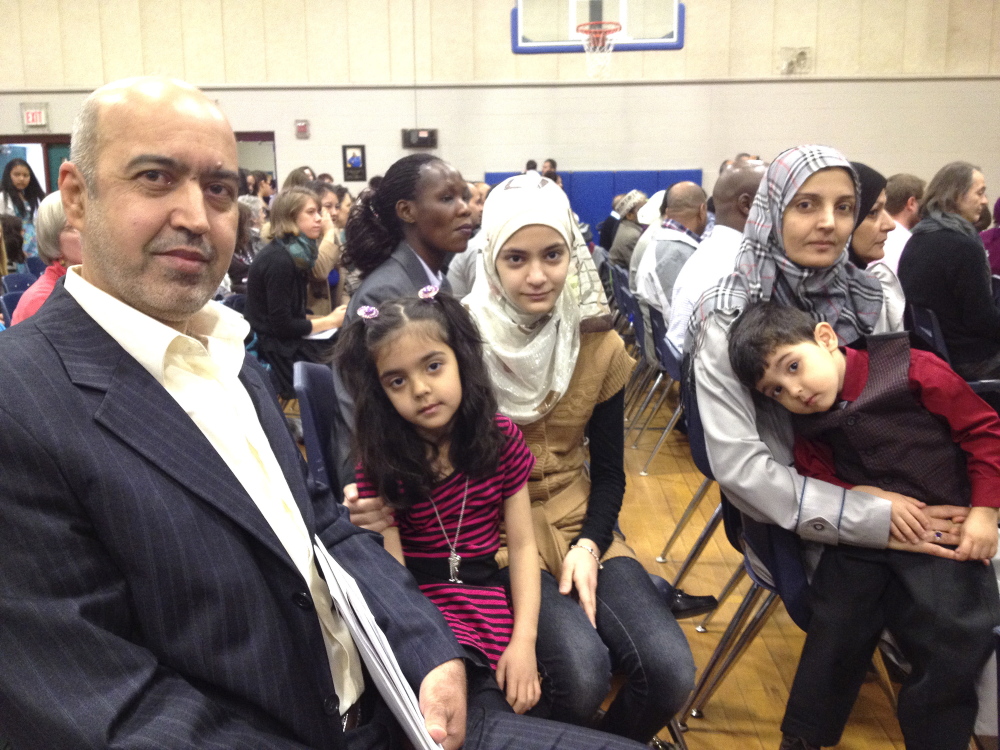President Trump says that his proposed suspension of refugee resettlement will keep America safer. But one of the downsides of the plan – its potential to disrupt families – is already obvious, and as this illogical and mean-spirited proposal moves ahead, it could actually undermine the president’s objective.
Under the restrictions, expected to be imposed Friday, there will be a 30-day ban on admitting anyone into the U.S. from Iran, Iraq, Libya, Somalia, Sudan, Syria and Yemen. Refugee admissions from all countries will be halted for four months while federal officials review vetting guidelines. Once resettlement resumes, the number of refugees resettled in the U.S. will be slashed from 110,000 to 50,000 a year.
The many Mainers driven out of their home countries by violence and persecution – such as 42-year-old Faysal Kalayf, who came to the U.S. from Iraq a decade ago and is now a citizen – wonder whether they’ll ever see their loved ones again. Four of Kalayf’s brothers and their mother have been stranded in a refugee camp in Jordan for three years. They could be killed if they returned to their former home, he said; now, they’re stuck.
The Trump team hasn’t said what it would do to tighten the process through which people like Kalayf are granted refugee status. That’s because it’s already extremely rigorous: Applicants must show that they fled their country because of race, religion, nationality, political opinion or membership in a particular social group. Fewer than 1 percent of applicants are recommended for resettlement; just a fraction of those wind up in the United States.
The screening process includes paperwork as well as in-person interviews with officials from the United Nations and multiple U.S. agencies. Most applicants wait over two years.
Suspending refugee resettlement could not only leave immigrants in limbo but also erode alliances that the United States has made in troubled areas around the world. “It sets the stage for the next generation of terrorists,” Ryan Crocker, former U.S. ambassador to Iraq and Afghanistan, told The Atlantic magazine. “Imagine some kid out there, a 12-year-old now in a refugee camp … . He knows he doesn’t have a viable economic future. And ISIS or its successor is there with money and a gun.”
Blocking terrorism victims from reaching the U.S. won’t keep terrorism perpetrators out of our country. In fact, it could put us all at greater risk – and it’s chilling that our new president either doesn’t realize that or doesn’t care.
Send questions/comments to the editors.


